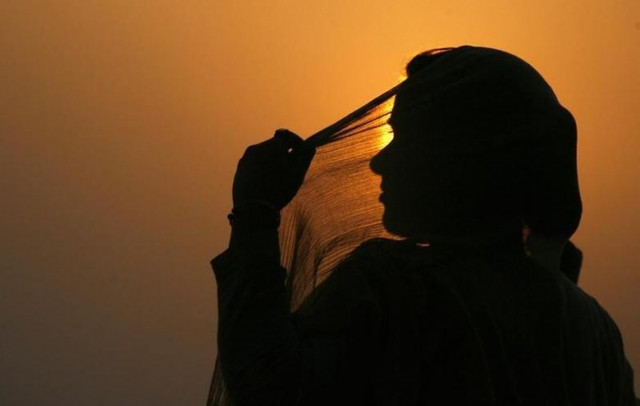Women’s financial inclusion can help increase GDP by 33%
Speakers stress the need for gender-responsive budgeting and policies

PHOTO: REUTERS
This was suggested by speakers at a youth dialogue on ‘Generation Equality: Realising Women’s Rights for an Equal Future’ in Islamabad on Friday. The dialogue had been jointly organised by UN Women Pakistan and the National University of Sciences and Technology (NUST).
The event was held to commemorate the 25th anniversary of the Beijing Declaration and Platform for Action which was ratified in 1995 and endorsed by 189 governments at the fourth World Conference on Women held in Beijing, China. However, real change has been agonisingly slow for the majority of women and girls in the world and not a single country can claim to have achieved gender equality even in 2020.
The event, organised under the Generation Equality campaign, started with opening remarks by
NUST’s Research, Innovation and Commercialisation (RIC) Pro-Rector Dr Nassar Ikram pointed to how the varsity is trying to draw more young women to technical fields which have been traditionally dominated by men.
“Education is the most important means to empower women and girls and enable them to take forward the gender equality agenda,” he said.
In a subsequent panel discussion, speakers focused on the Beijing Declaration and importance of equal pay, equal sharing of unpaid care and domestic work, an end to sexual harassment and violence against women and girls, healthcare services that respond to their needs, and their equal participation in political life and decision making in all areas of life.
UN Women Regional Director Asia and the Pacific Mohammad Naciri said that it was unfortunate that the fight for women’s rights has had to continue for so long.
“As the world marks 25 years of Beijing Platform for Action, it is time to push hard for advancing gender equality. Youth demands equal rights and equal opportunities for all, and a world free from violence,” Naciri said.
“Patriarchy is not only in the minds of men but also women,” the UN official said, adding, “It is essentially a social norm. So, we need to disassociate patriarchy from men.”
“It is important to change the mindset, speak with new generations without discrimination of men and women so that we could effectively deal with preconceived notions built on gender discrimination,” Naciri said.
He appreciated that Pakistan is among the countries to have recognised people who are transgender as the third gender and was legislating to protect their rights.
Naciri stressed the need for gender-responsive budgeting, planning and policies to ensure there were health, education and civic services that respond to the needs of all women, men and people who are transgender.
“Pakistan is committed to Sustainable Development Goals (SDGs). With joint efforts of all stakeholders, awareness is increasing, and the legislative process is going on in the right direction,” said Uzma Kardar, a member of the Standing Committee on Gender Mainstreaming.
Published in The Express Tribune, February 29th, 2020.


















COMMENTS
Comments are moderated and generally will be posted if they are on-topic and not abusive.
For more information, please see our Comments FAQ